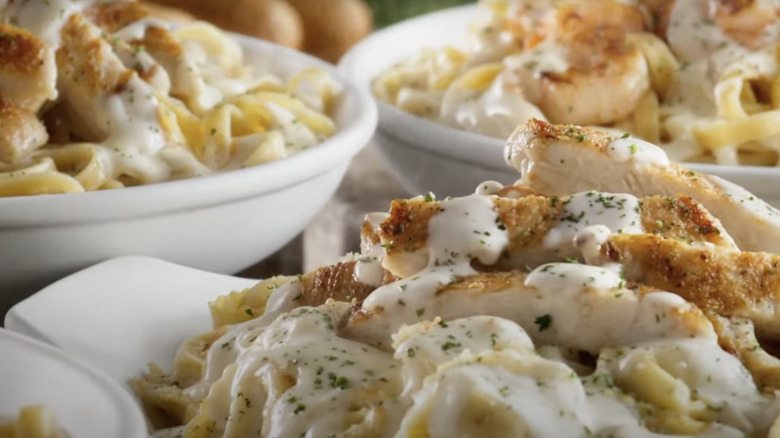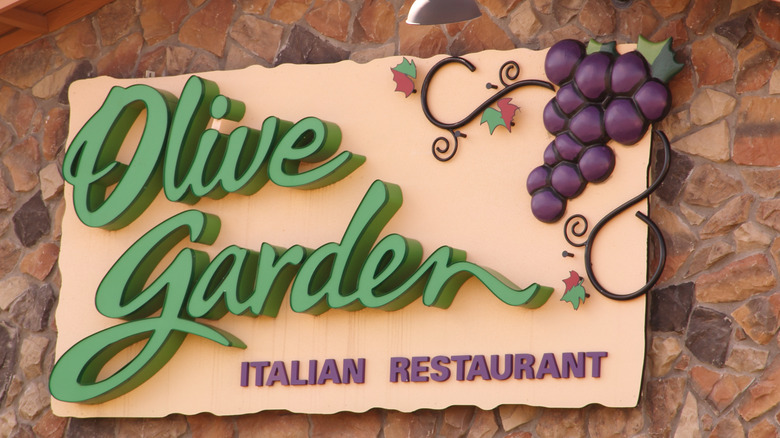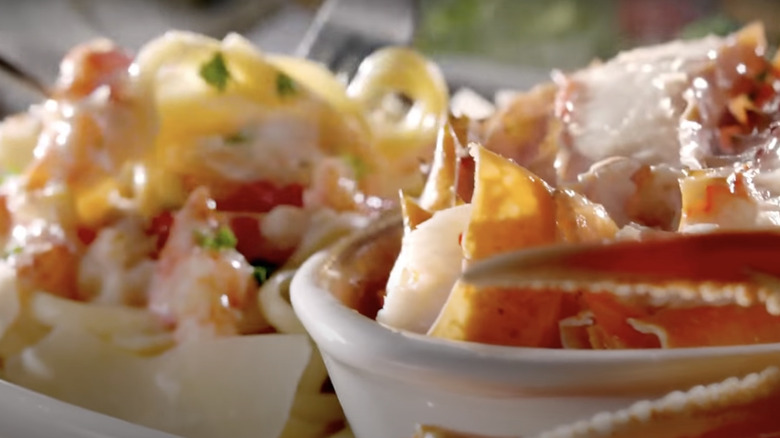That Time Olive Garden Tried Inventing 'Authentic' Italian Meals
On virtually every list of the best cuisines in the world, one name sits at or near the top: Italian food. It makes sense since Italian food contains accessible flavors for virtually every other culture and is incredibly delicious. There's enough variance within Italian cuisine that it's hard not to find something you'd like. But there is Italian food, and there is Olive Garden.
Despite the wild popularity of the chain's breadsticks, Olive Garden's resemblance to authentic Italian cuisine is ... well, dubious at best. The brand has leaned hard into signifiers of Italian culture with tables full of various pasta dishes and with slogans like "When you're here, you're family" and the more recent, "We're all family here." But many say the company got uncomfortably far out of its lane in the 2000s when it made up names for pasta dishes, pretending they were authentic, then acted surprised when the company was called out.
Olive Garden somehow thought this would fool people
Back in 2011, Olive Garden claimed the failure of dishes like "soffatelli" and "pastachetti" was due to customers not being familiar with them. Technically, that might actually be true — but maybe the reason no one knew what they were is because Olive Garden made them up. Sure, 2011 was a simpler time, but the internet existed, and a cursory Google search for "what is pastachetti" would've given the game away in short order.
Obviously, Olive Garden didn't really need to admit it had made these dishes up because anyone with even a casual familiarity with Italian food could've guessed "pastachetti" is not authentic Italian and roughly equivalent to inventing a dish called the "sacre bleu soufflé" and calling it authentic French food. It was a marketing misstep for the books that, even for an American restaurant chain founded by General Mills (whose connection to Italian culture is non-existent), galled diners at home and abroad. The world already had low expectations, and Olive Garden stomped them deeper into the earth.
Restaurant brands, including Olive Garden, occasionally make major missteps
In fairness, Olive Garden is no stranger to making bafflingly bad decisions. Right around the time the company was forced to shelve its "authentic" dishes, it tried a sort-of combo restaurant experiment with its sister chain, Red Lobster. The two restaurants would share a roof and a kitchen — but absolutely nothing else, with separate entrances/exits and dining rooms. Unsurprisingly, this experiment failed because it begged the question: Who was this for? What customers would be lured to either Olive Garden or Red Lobster by the presence of the other restaurant nearby? At best, it maybe saved a few bucks on real estate. Ultimately, the project was abandoned only a few years after it began.
Then again, Olive Garden hasn't had any catastrophic errors on par with Red Lobster's disastrous Endless Crab Promotion of 2003. Maybe these relatively minor mistakes are simply the cost of doing business as a large restaurant chain.


